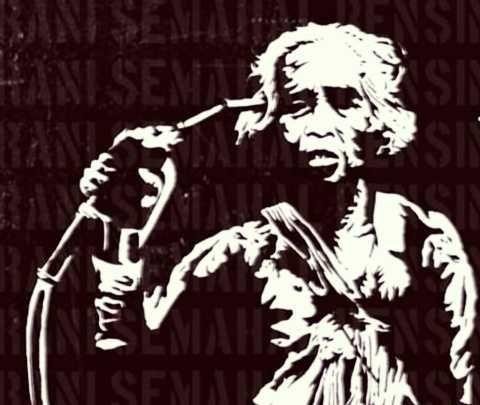Dark Passengers, Politics of "Magical Hands"

This is indeed not the story of Constantine the Great who succeeded in convincing Licinius to fight against Maxentius and unite all Romans under the banner of Christianity. After Maxentius lost, Constantine turned and defeated Licinius, then made all of Rome under his control.
This is also not the story of Raden Wijaya who succeeded in tricking the Mongolian army into fighting against Jayakatwang who destroyed the Singasari Kingdom. After Jayakatwang lost, Raden Wijaya turned to destroy the Mongolian sea expedition and founded the Majapahit Kingdom in East Java.
This is the story of Masinton Pasaribu, a PDIP politician who mentioned that Indonesian democracy had been infiltrated by "stowaways". These three stories are not forced to look similar, but all have one thing in common, namely that there are no eternal enemies and friends in politics. Constantine had shown it, Raden Wijaya had used it, and Masinton had justified it.
The House of Representatives member from Commission III said that Indonesian democracy which brought freedom, had actually been infiltrated by those who had their own agenda. In May 1998, all parties seemed to be in harmony with each other, wanting to bring down the miserable Soeharto authoritarian government. However, after this country entered the reforms, it was seen that each party had its own interests, not even a few who later dropped each other.
Stowaways take advantage of the freedom offered in democracy to carry out their agenda. According to Masinton, in the present context, they spread false information aka hoaxes in order to spread chaos. Even further, he also said that this group wanted to replace Pancasila from its position as the basis of the Indonesian state.
Indeed, since Indonesia entered the era of freedom in the heading of democracy, political and national issues actually turned out to be far more complex. That complexity makes a local phenomenon often unable to stand alone, not even a few involving foreign forces - what Masinton called the stowaways.
Of course this Masinton statement caused debate. Who does the stowaway mean? What will they do in the 2019 Presidential Election?
****Dark Passengers, Politics of "Magical Hands"****
The concept of stowaways is indeed a rather difficult term to explain. Professor of anthropology from Aarhas University, Denmark, Nils Bubandt in his book entitled Democracy, Corruption and the Politics of Spirits in Contemporary Indonesia, said that the term stowaway has a contextual meaning for Indonesian domestic politics.
Bubandt translates it as "dark passengers" - of course literally - but he gives the phrase the same meaning as "stowaways" or "free riders". Bubandt refers to the term stowaway as a terminology used to describe certain forces that want to take advantage of certain political situations.
Often these strengths appear to be on the same side, but have an agenda that is not infrequently at odds and actually has a bad effect on people or parties who fight.
If traced more closely, the term stowaway was first used by Susilo Bambang Yudhoyono (SBY) while still serving as the Coordinating Minister for Politics, Law and Security (Menkopolhukam) in the era of President Abdurrahman Wahid (Gus Dur).
At that time, around 2001, based on intelligence obtained from the State Intelligence Agency (BIN), SBY warned students who often demonstrated to be careful of stowaways that could potentially create chaos and cause chaos.
The term came back popular when it was used by Andi Alfian Mallarangeng while serving as Spokesperson for President SBY in 2009 to comment on plans for student demonstrations that could potentially be ridden by certain parties. At that time the issue that was sticking to the surface was related to the Century Bank scandal.
Andi even called the stowaways very likely to be the parties in SBY's power, mainly from coalition parties. Nils Bubandt had noted that the accusation had led to the Golkar Party, PDIP and PAN.
In a different camp, the term stowaway was also stated by Megawati Soekarnoputri in the 2012 Jakarta regional election. At that time, the PDIP Chairperson accused there of parties who felt themselves meritorious in winning Joko Widodo (Jokowi) and Basuki Tjahaja Purnama (Ahok) in the political contestation. It was rumored that the person referred to as a stowaway was the Gerindra Party.
Three years later, after Jokowi was elected President, Mega again issued a statement about the presence of stowaways around the Jokowi government. The stowaways took advantage of Jokowi's power to achieve their interests.
If so, who are actually those whom Bubandt also calls these "magical hands"?
It is clear that anyone can be the stowaway in question. However, if we talk about the context of democracy in Indonesia, some sources say the term stowaways relate to those who have their own agenda through the 1998 reform, one of which is through the amendment to the 1945 Constitution.
The amendments that occurred up to four times were considered by many to accommodate the interests of "occult hands" - those who wished to liberalize Indonesia. Indeed, this sounds like a conspiracy theory. However, in fact after the 4th amendment occurred, various major changes occurred in this republic. What we are talking about is programs such as privatization of BUMN, abolition of subsidies, and deregulation in various sectors.